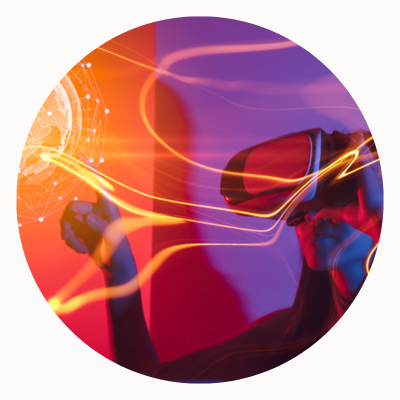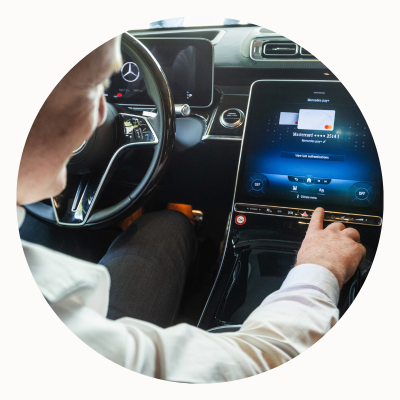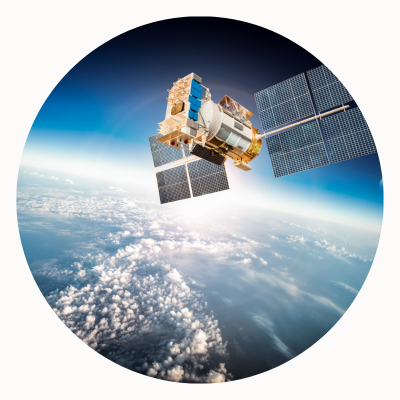Beyond the buzzwords: The CES 2025 tech trends that actually matter
January 2, 2025 | By Chris Mullen
|
about In Tech In Tech is our regular feature highlighting what people are talking about in the world of technology — everything from crypto and NFTs to smart cities and cybersecurity. |
As 2025 arrives, technology is advancing at an unprecedented pace, reshaping industries, enhancing daily life and addressing global challenges. At CES, one of the tech world’s most influential trade shows, offers a hint into these developments and helping us understand where technology is headed. Here’s a look at the key trends expected to define the year ahead.
01
AI: Yes, it's still everywhere
AI is no longer a shiny buzzword; it’s a baseline. The conversation continues to shift away from asking what AI can do into asking how it’s solving industry-specific challenges.
For instance, in health care, AI has transitioned from vague promises to tangible outcomes. Expect to see solutions like precision diagnostics, AI-enabled prosthetics, and wearables that go beyond tracking your steps — these devices will analyze your health data in real-time to predict issues before they escalate. It’s not just AI — it’s useful AI.
The CES Innovation Awards reflect this evolution, with nearly 50% of winners tied to AI applications that aim to improve medical outcomes, reduce energy consumption, create safer online experiences. AI isn’t news anymore—how companies leverage it is.

02
Extended reality and spatial computing: It's not just for gamers
Extended reality used to mean virtual reality headsets gathering dust in the living room or augmented reality gimmicks that felt like just another tech demo. But XR has potential for far more practical applications — particularly in business and education.
Expect to see new developments in spatial computing, a concept popularized by Apple’s Vision Pro but rapidly expanding beyond that. Whether it’s collaborative design spaces for engineers, virtual training simulations for medical professionals, or AR and AI to enhance storytelling, XR is building on its foundation in the entertainment niche, but progressing into the workforce.
This year’s CES also features sessions on the future of XR tech, with experts diving into how mixed reality can reshape industries. In other words, this isn’t just about strapping on a headset — it’s about merging physical and virtual worlds in ways that matter.
03
Sustainability tech: Because it's about us
While tech’s environmental footprint can often be swept under the rug, CES 2025 puts it front and center. From renewable energy innovations to tech designed for circular economies, this year’s focus on sustainability isn’t just for show.
Notably, the Innovation Awards now feature a category specifically for sustainability and energy solutions. This shift acknowledges that solving environmental challenges isn’t optional anymore — it’s imperative. Expect to see new battery technologies that extend the life of electric vehicles, smart grids that optimize power consumption, and materials that reduce waste in production.
The big takeaway? Companies aren’t just showcasing eco-friendly products; they’re redefining how their operations, supply chains and innovations can align with sustainability goals.

04
Vehicle technology: Beyond electric and autonomous
The automotive sector is evolving with a focus on in-vehicle experiences. Advancements include in-car payments, next-generation entertainment systems, seamless connectivity transforming cars into mobile offices, and sophisticated safety features surpassing traditional collision warnings. Companies like John Deere are introducing autonomous agricultural vehicles, highlighting the expansion of mobility technology beyond passenger cars.
05
Robotics: Efficiency meets real-world impact
Robotics is advancing with practical applications in mind. Collaborative robots (“cobots”) are enhancing productivity in manufacturing and health care, while drones are being deployed for critical tasks such as emergency response. NVIDIA's development of Jetson Thor computers aims to power humanoid robots, indicating significant strides in robotics technology.

06
Space technology: Bridging orbit and Earth
Space tech innovations are finding practical applications on Earth. Developments such as satellite-powered connectivity and materials engineered for extreme conditions are influencing industries ranging from telecommunications to manufacturing, demonstrating the tangible benefits of space exploration technologies.
A look ahead
The technological landscape of 2025 is one of integration and impact. Innovations are becoming more interconnected, addressing pressing challenges while creating new opportunities. The year ahead promises to redefine how technology shapes our world, from the practical applications of AI and XR to sustainability and space exploration.